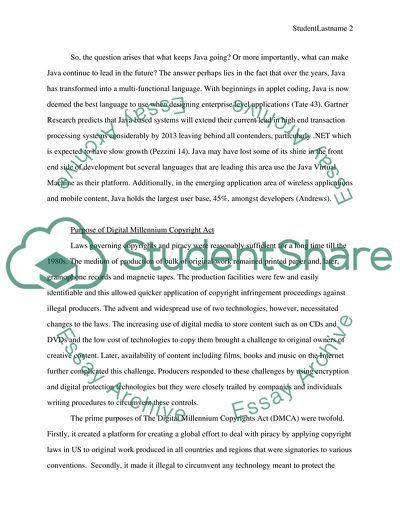Cite this document
(The Future of Java / Digital Millennium Copyright Act Essay Example | Topics and Well Written Essays - 1500 words, n.d.)
The Future of Java / Digital Millennium Copyright Act Essay Example | Topics and Well Written Essays - 1500 words. https://studentshare.org/information-technology/1719175-the-future-of-java-digital-millennium-copyright-act
The Future of Java / Digital Millennium Copyright Act Essay Example | Topics and Well Written Essays - 1500 words. https://studentshare.org/information-technology/1719175-the-future-of-java-digital-millennium-copyright-act
(The Future of Java / Digital Millennium Copyright Act Essay Example | Topics and Well Written Essays - 1500 Words)
The Future of Java / Digital Millennium Copyright Act Essay Example | Topics and Well Written Essays - 1500 Words. https://studentshare.org/information-technology/1719175-the-future-of-java-digital-millennium-copyright-act.
The Future of Java / Digital Millennium Copyright Act Essay Example | Topics and Well Written Essays - 1500 Words. https://studentshare.org/information-technology/1719175-the-future-of-java-digital-millennium-copyright-act.
“The Future of Java / Digital Millennium Copyright Act Essay Example | Topics and Well Written Essays - 1500 Words”. https://studentshare.org/information-technology/1719175-the-future-of-java-digital-millennium-copyright-act.


